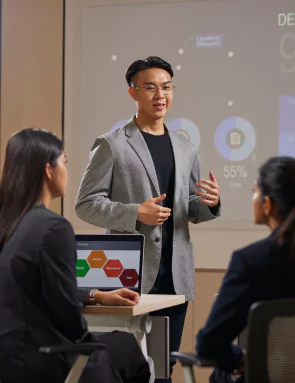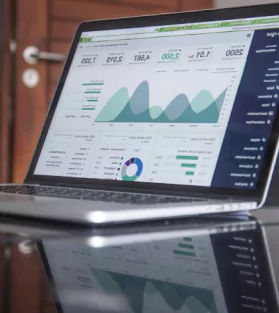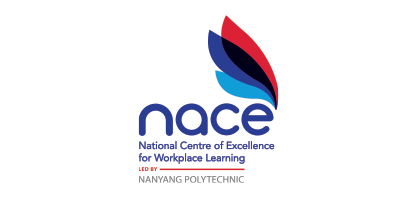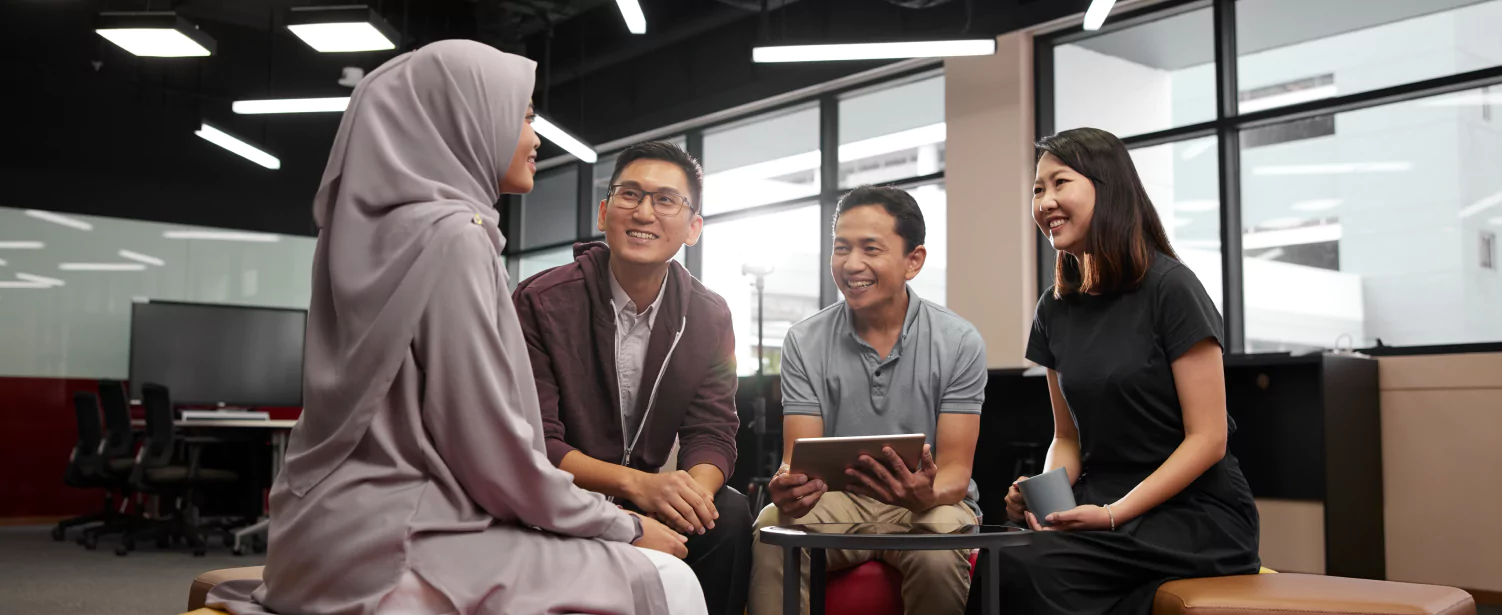Invest in yourself with government subsidies

SkillsFuture Credit Courses
Use your SkillsFuture Credit to offset course fees for eligible courses. Enrol in courses that boost your skills and development to be future-ready.

SkillsFuture Level-Up Programme
Upskill with your $4,000 credit top-up, and enjoy up to 90% fee subsidies. Plus, you could be eligible for training allowance.

ITE Progression Award
Accelerate your progression and future prospects with NYP diplomas! Eligible ITE graduates will receive $5,000 PSEA & $10,000 CPF-OA top-ups upon diploma completion.
What our learners say
The course taught me biomedical concepts, and I now use my CAPA & Risk Assessment experience to train staff on risk analysis and implementing corrective and preventive measures.
Tan Aik Khoon, Specialist Diploma in Biomedical & Pharmaceutical Engineering
With the Work-Study Programme, I was able to balance work and study, while earning the Best Desktop Engineer award, showcasing its effectiveness in fostering growth and excellence.
Nur Jalilah Binte Mohammed Afendi, Diploma in Infocomm & Digital Media (IT Network And System Administration)
The Career Conversion Programme gave me practical skills needed to excel. Plus, the guidance by experienced instructors made switching careers at 40 possible and less overwhelming.
Joyee Lua Hui Yee, Diploma in Nursing (CCP-RN)
As covered in the news
 (1).png)
Zarina Abdul Rahman, Diploma in Business Practice (Customer Relationship & Service Management)
At Budget 2025, PM and Min(MOF) Lawrence Wong highlighted how the SkillsFuture Level-Up Programme supported Zarina in balancing her work, family, and education.

Marc Lai, Specialist Diploma in Energy and Environmental Management for Process Industry
Marc shared how he tapped on enhanced funding support for Singaporeans aged above 40, alongside his SkillsFuture Credit, to offset his course fees payable.
Keep learning
with us
-
![Three adults looking at laptop together]()
Short Courses
Explore our introductory tasters or skill up for micro-credentials. Whether you invest a few hours or a few days, you’ll emerge better equipped.
-
![Man holding phone and looking into the distance]()
Part-Time Diplomas & Certificates
Our flexible learning approach allows you to earn recognised diplomas/certificates, and upgrade your skills with industry-aligned part-time programmes.
-
![Girl fixing robot]()
Advanced and Specialist Post-Diplomas
Designed in collaboration with industry leaders, our diploma programmes equip you with in-demand skills and position you for success.
-
![Two adults in discussion]()
Career Transition / Conversion Programmes
Explore SkillsFuture Career Transition Programmes (SCTP) or Career Conversion Programmes (CCP), which can support your transition into a new domain.
-
![Three students in discussion in front of a laptop]()
For fresh ITE graduates: Work-Study Certificates
Transition smoothly into a new domain of your choice. Enjoy skills-based wage increments and career advancement pathways upon programme completion.
-
![A girl looking at three desktop screens for data analysis]()
For fresh Diploma holders: Work-Study Post-Diplomas
Gain a Career Headstart. Develop in-demand skills, or land a sign-on incentive with your employer.
Keep learning with us


Short Courses
Are you long on curiosity but short on time? Explore our introductory tasters or skill up for micro-credentials. Whether you invest a few hours or a few days, you’ll emerge better equipped.
Learn more

Part-Time Diplomas & Certificates
Our flexible learning approach allows you to earn recognised diplomas/certificates, and upgrade your skills with industry-aligned part-time programmes.
Learn more

Post-Diplomas
Designed in collaboration with industry leaders, our specialist and advanced diploma programmes equip you with in-demand skills and position you for success. Stand out from the crowd and unlock new career opportunities.
Learn more
Explore our
lifelong learning institutes
Deepen your skills and expertise. Unlock a world of possibilities at our Continuing Education & Training (CET) Institutes, known for excellence in their respective fields.

Singapore Institute of Retail Studies (SIRS)
We empower the retail industry to innovate and grow towards the Future of Retail leveraging technology, through strategic partnerships and training solutions.

Asian Culinary Institute Singapore (ACI)
We empower companies and individuals to innovate and transform the F&B industry, through our comprehensive up-skilling programmes and network of experts.

National Centre of Excellence for Workplace Learning (NACE) Led by NYP
We empower every business to make workplace learning a part of their business for driving sustained growth and success.
What our learners say
The course taught me biomedical concepts, and I now use my CAPA & Risk Assessment experience to train staff on risk analysis and implementing corrective and preventive measures.Read his story
Tan Aik Khoon, Specialist Diploma in Biomedical & Pharmaceutical Engineering
With the Work-Study Programme, I was able to balance work and study, while earning the Best Desktop Engineer award, showcasing its effectiveness in fostering growth and excellence.
Nur Jalilah Binte Mohammed Afendi , Diploma in Infocomm & Digital Media (IT Network And System Administration)
The Career Conversion Programme gave me practical skills needed to excel. Plus, the guidance by experienced instructors made switching careers at 40 possible and less overwhelming.
Joyee Lua Hui Yee, Diploma in Nursing (CCP-RN)








